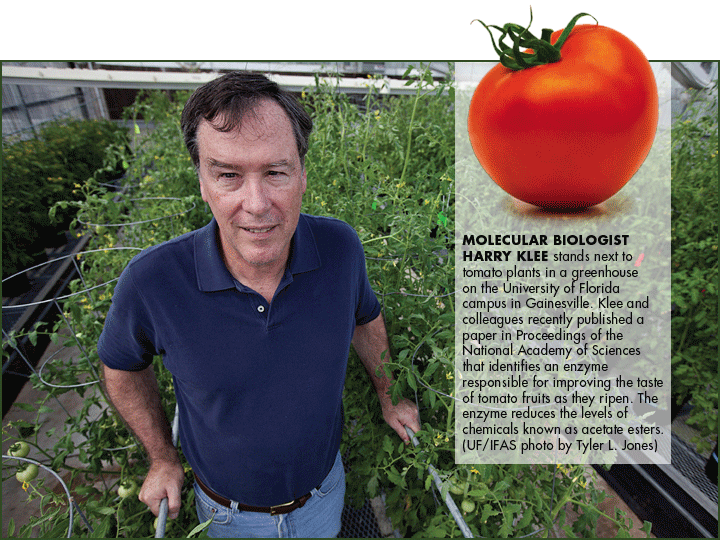The UF/IFAS Extension services are often credited with numerous benefits to Florida’s $70 billion-a-year agriculture industry. Improving sustainability, identifying pests, increasing agritourism, and providing advice at the state and local level are a few of the benefits most folks in the ag sector have come to expect. Operationalizing one of the program’s latest scientific discoveries could have a positive and lasting impact on Florida’s tomato sector.
Over the past five years, there has been a nearly 30 percent drop in the number of acres of tomatoes planted by Florida growers. Industry sources speculate a number of different reasons for the decline, everything from new trade policies to a change in production preferences. One unchanging fundamental in any sales-based sector is the law of supply and demand: If there is a strong market for a product, then producers will emerge to meet the demand.
UF/IFAS scientists have recently published a paper (in Proceedings of the National Academy of Sciences) identifying an enzyme responsible for improving the taste of tomato fruits as they ripen, by reducing the levels of chemicals known as acetate esters. How does that translate into English? Tomatoes with more of this particular enzyme taste better. That could, in turn, translate into more demand for the better tasting tomato — a position that Florida farmers would very much like to see.
What has to happen in the meantime is for the science to find its way into production. According to Dr. Harry Klee, the molecular biologist leading the research team, “This (research) is part of a much larger effort to identify all of the critical genes controlling tomato flavor … one gene by itself is only a part of the puzzle.”
That is certainly a job for the UF/IFAS team. Looking into the genes of tomato plants requires sophistication and patience to understand the enzyme interactions. Klee reports that the team is working with private partners to help zero in on a better-tasting tomato. Identifying all the components that affect flavor and then modifying some of those genetic compounds will take time. However, Klee does think that “tomatoes with improved flavor (have) the potential to recapture market share that has been lost to some of the specialty products like greenhouse-grown fruits.”
Research such as this certainly is a promising development on the horizon for Florida farmers.
Klee’s article: http://www.pnas.org/content/early/2012/10/25/1216515109.abstract?sid=6e2e5c35-4f62-4c3d-80d5-ba2fd43239f3
CREDIT
story by MICHEAL JAMES SELF, Ed.D.

